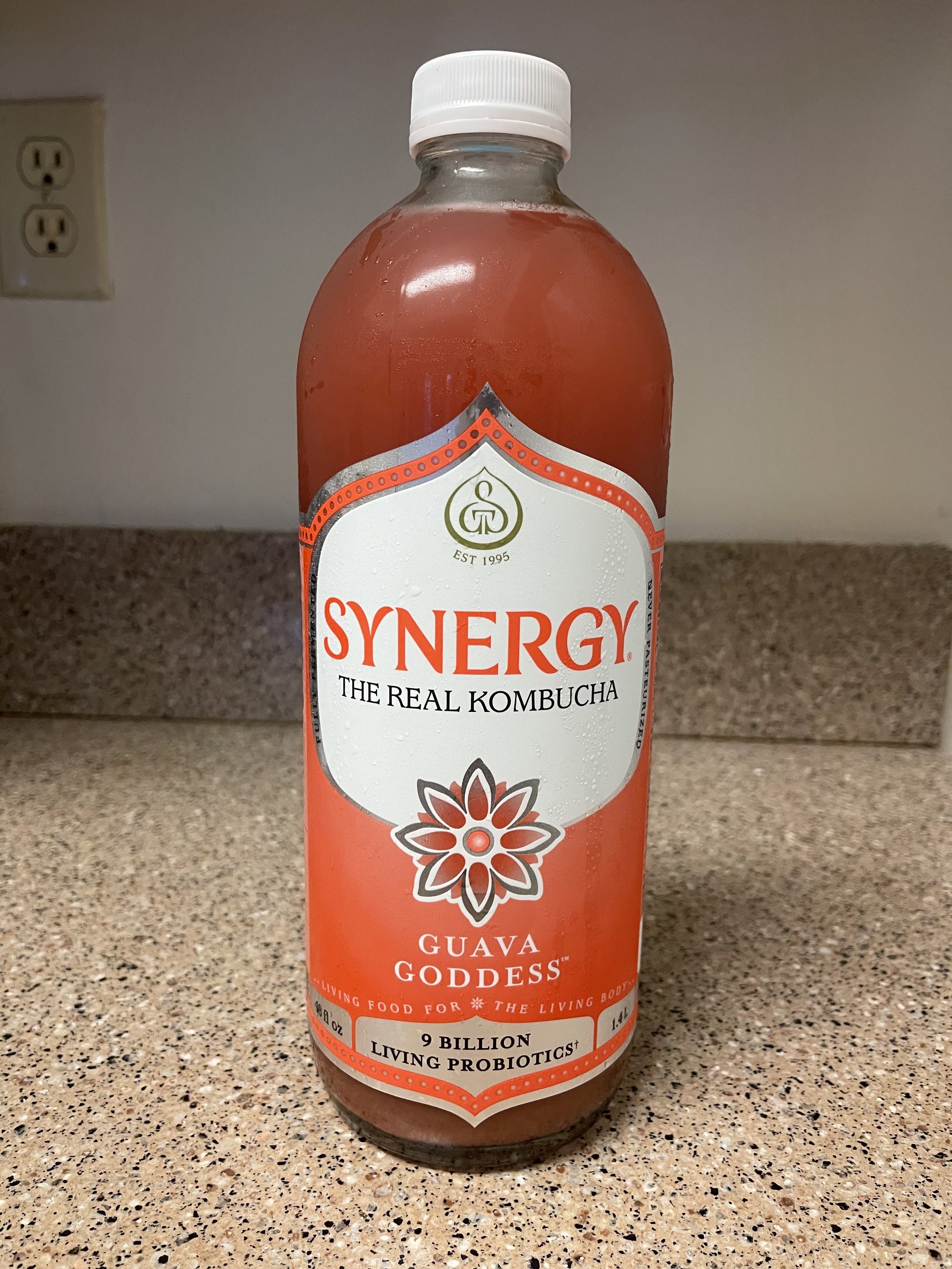Kombucha: Is the Buzz Worth It or Just Fizzy Hype?
Kombucha likely comes from the Japanese word "kombu," a seaweed, though it's often attributed to a physician named Kombu who introduced the drink to a Japanese emperor, linking it to fermented tea.
Kombucha: Is the Hype Real? Discover if This Fizzy Drink Lives Up to the Buzz.
Kombucha is a fizzy, fermented tea that has gained significant popularity as a health-conscious drink among consumers in recent years. This article shares interesting information backed by substantial research and evidence about this intriguing beverage. Kombucha's unique fermentation process not only enhances its complex flavor profile but also adds a small amount of alcohol, specifically under 0.5%, making it a legal non-alcoholic beverage option for those who wish to enjoy a delightful drink without the effects of higher alcohol content. It is notably rich in antioxidants and polyphenols, and it contains approximately 35-50 mg of natural caffeine per serving, providing a gentle energy boost. Additionally, Kombucha is known for its probiotics, which are beneficial bacteria that contribute to maintaining a healthy gut microbiome. Similar health benefits can be found in other fermented foods such as kimchi, pickles, kefir, and yogurt, all of which contribute to overall well-being.
What is the difference between probiotics and prebiotics?
Kombucha contains probiotics, not prebiotics. Probiotics are live beneficial bacteria and yeast that help support your gut health. During the fermentation process of kombucha, these probiotics are produced, which is why kombucha is often considered a gut-friendly drink.
Prebiotics, on the other hand, are substances (usually fibers) that feed the beneficial bacteria in your gut but aren't bacteria themselves. Kombucha doesn't contain prebiotics in significant amounts, though the tea and sugar used to make it might have small amounts of prebiotic fibers, depending on how it’s made.
Kombuchas may have some potential health effects, however research is limited.
Rich in Antioxidants: Kombucha is packed with antioxidants, especially those made from green and black tea. Kombuchas from these teas have distinct phenolic profiles, which are compounds that help fight oxidative stress in the body. So, sipping kombucha might be like giving your cells a mini antioxidant boost!
Cancer-Fighting Potential: Some kombucha teas show promise in fighting cancer cells. Studies have shown that certain solvent fractions of kombucha might impact the viability and invasiveness of cancer cells, suggesting kombucha could have potential as a complementary health drink. While it's not a miracle cure, these findings are pretty cool!
Gut Health: Kombucha is full of probiotics (beneficial bacteria), thanks to its fermentation process. These probiotics are like the good guys in your gut, helping to balance your digestive system. They may also contribute to your immune system’s health.
Could Be an Anti-Inflammatory Ally: Oak kombucha, a specific type of kombucha, has been shown to help protect against oxidative stress and reduce inflammation. If you're feeling a bit run down, this version might just give your body some extra support.
Caffeine Boost: Kombucha is made from tea, which means it contains a small amount of caffeine. If you're sensitive to caffeine, it's something to keep in mind—though the levels are much lower than in a cup of coffee. It's perfect for those looking for a light pick-me-up without the jitters.
So, whether you're enjoying it for gut health, antioxidants, or just because it’s refreshingly fizzy, kombucha is more than just a fun drink—it’s a wellness-packed alternative! Try swapping out your soda or beer for this fantastic bubbly option.
Money hack: larger bottles are usually more affordable and can provide better value for your budget in the long run.
My absolute favorite kombucha is the delightful Guava Goddess flavor from SYNGERY.
”4 ounces of Kombucha a day keeps the doctor away?”
What is the daily recommended intake of kombucha for optimal health benefits?
Like anything, moderation is key. Although kombucha is generally safe, drinking too much could lead to some digestive discomfort or upset stomach due to its acidic nature. The Cleveland Clinic recommends sticking to one or two servings a day for the best health benefits. Generally, it is suggested to consume about 4 ounces, which is approximately 118 milliliters.
Sugar Alert! While kombucha is often touted for its health benefits, it’s important to watch out for added sugars in commercial bottles. Some brands load it up with unnecessary sweeteners, which can turn your health drink into a sugar bomb. Always check the label before grabbing a bottle!
Whether you're new to kombucha or a seasoned sipper, each bottle offers a unique experience—cheers to your health and the journey of discovering your perfect brew.
References
Cardoso, R. R., Neto, R. O., dos Santos D'Almeida, C. T., do Nascimento, T. P., Pressete, C. G., Azevedo, L., ... & de Barros, F. A. R. (2020). Kombuchas from green and black teas have different phenolic profile, which impacts their antioxidant capacities, antibacterial and antiproliferative activities. Food Research International, 128, 108782. [DOI] [PubMed]
Does Kombucha Live Up To the Hype. Cleveland Clinic (2023). https://my.clevelandclinic.org/podcasts/health-essentials/does-kombucha-live-up-to-the-hype-with-julia-zumpano-rd
Jayabalan R., Chen P.N., Hsieh Y.S., Prabhakaran K., Pitchai P., Marimuthu S.…Yun S.E. Cambridge University Press; 2011. Effect of solvent fractions of kombucha tea on viability and invasiveness of cancer cells—characterization of dimethyl 2-(2-hydroxy-2-methoxypropylidine) malonate and vitexin. [Google Scholar]
Kombuchas Health Benefits and How much Can You Safely Drink. Cleveland Clinic. (2023). https://health.clevelandclinic.org/what-are-kombuchas-health-benefits-and-how-much-can-you-safely-drink
Vázquez-Cabral B.D., Larrosa-Pérez M., Gallegos-Infante J.A., Moreno-Jiménez M.R., González-Laredo R.F., Rutiaga-Quiñones J.G.…Rocha-Guzmán N.E. Oak kombucha protects against oxidative stress and inflammatory processes. Chemico-Biological Interactions. 2017;272:1–9. doi: 10.1016/j.cbi.2017.05.001. [DOI] [PubMed] [Google Scholar]
Zagrabinski, T. (2020). The history of kombucha - Part 1. Booch News. Retrieved from https://www.boochnews.com/2020/12/10/guest-posting-the-history-of-kombucha-part-1-by-tadeusz-zagrabinski



